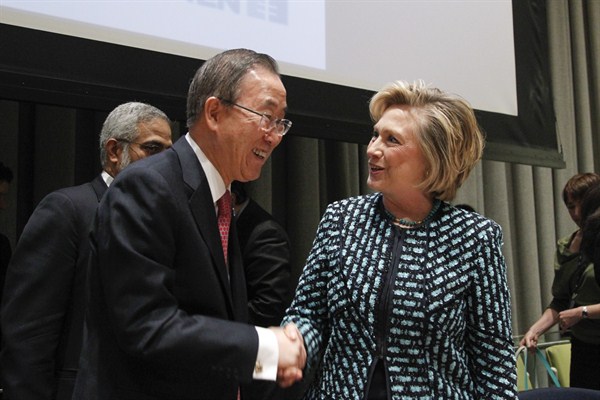If Hillary Clinton is elected president of the United States in November, fixing the failings of United Nations peacekeeping operations is unlikely to be one of her foreign policy priorities. Putting Russia in its place and balancing China in the Pacific will loom much larger on her to-do list.
But the next administration is likely to find that crises involving blue helmets have a habit of creeping up its agenda. Clinton is presumably painfully aware of this. Her husband’s presidency was punctuated by peacekeeping failures from Somalia to Srebrenica, and the failure to give U.N. personnel effective back-up during the Rwandan genocide was the greatest error of his tenure. The next President Clinton may well approach U.N. operations with wariness and déjà vu.
She would not be wrong to do so. Peacekeeping is in better shape than it was in her husband’s day. The Obama administration has prodded its NATO allies to deploy more high-quality troops under U.N. command and invested in training the African units that increasingly fill the organization’s ranks. But the U.N. still suffers regular setbacks and scandals, frustrating and embarrassing the U.S. in equal measure.

